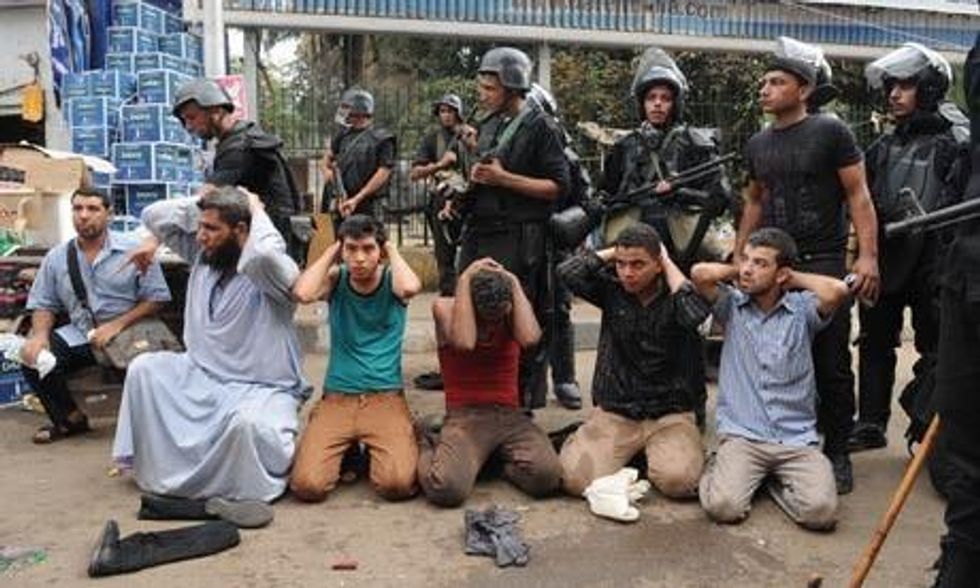On Wednesday the Egyptian police moved in to break up the Muslim Brotherhood sit-ins. Cairo and many other cities are divided: some neighbourhoods are weirdly empty, the shops shuttered, no cars in the streets. Others are seeing pitched battles with guns and armoured personnel carriers and teargas. Once again we're watching images of bodies piled up on field hospital floors.
None of this is unexpected. The road that has led us here was chosen, deliberately and over time. For almost three weeks, since Abdel Fatah al-Sisi demanded a mandate to deal with "the security situation", the country has been edging closer and closer to crisis. The Brotherhood chose to dig in, to create little enclaves of defiance. The state declared it had to disperse them. Several rounds of negotiations broke down.
The rhetoric from both sides of the divide has been objectionable, unacceptable, dehumanising. Some voices have insisted on the police minimising the use of violence, on the non-negotiability of basic human rights, and that we need to think what will happen after the sit-ins have been broken up. What about the 3 million or so who will now feel disenfranchised?
There is no doubt the Brotherhood feels justice and legitimacy are on its side. There is no doubt its year in power lost it the sympathy of the country. But there is also no doubt it would have been better if the Brotherhood had been voted out, not forced out.
Could we have waited for parliamentary elections? The many millions who came out on the streets on 30 June didn't think so. They came out again four weeks later to respond to Sisi's request for a mandate. And the media reinvented itself and whipped up a love-fest for the military. So now what we've been dreading has come to pass: the police, backed by the military, have moved in. The official death count as I write is 150. It will rise. The Brotherhood is asking how "the people" are allowing this to happen. And it has been appealing to the foreign press and world public opinion.
But its rhetoric in Arabic has been viciously sectarian and - in response to the police moving in on the sit-ins - churches in Assiut, Sohag, Minya, Suez and Arish are being torched. In Minya also the Jesuit school is being burned. Christian businesses and homes are being attacked. And in the middle of this mayhem the Brotherhood's Freedom and Justice portal writes: "Groups of Christian thugs in the protection of the police tried to break up (Muslim) protesters." The sectarian discourse promoted by the Brotherhood, and the destructive and murderous acts it has led to over the past months, are unforgivable.
And yet, among the hundreds of thousands at the Brotherhood sit-ins many of us have friends and relatives. One much-shared tweet says: "Three of my comrades in the revolution have brothers in the MB [Muslim Brotherhood] sit-in. What am I supposed to feel?" Just as we, in the streets of the revolution, said with utter conviction, "there was never an idea killed by jail, never a tomorrow delayed by force", so the Brotherhood is saying now.
But it has proved that its basic ideology and attitude is sectarian. This cannot be a matter for compromise; it needs to be defeated. The police massacres, though, will not defeat it. This police force and this military can only respond with brutal force to challenges to authority. Many of us continue to remind everyone that the army spent a year killing us on the streets, that the police and the military are not the guardians of plurality or democracy or human rights or any of the values this country rose up for in January 2011.
For a brief moment, two years ago, we believed progressives, liberals and Brotherhood supporters could work together for a civil state. Instead, the Brotherhood, in power, courted the police and the army; today it, the country and the revolution are paying the price.


